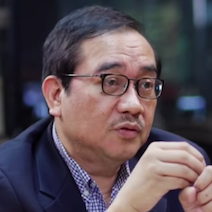

The following piece was written on March 11, a day before President Rodrigo Duterte announced that Metro Manila would be placed on lockdown to prevent the spread of the novel coronavirus.
This country needs a surgical knife to avert a looming epidemic of unimaginable proportions. The National Capital Region (NCR) is densely populated. It might cause a centrifugal spread of the coronavirus – from NCR to peripheral areas. Worse, the DOH has already recorded its first coronavirus cases in Dumaguete and Cagayan de Oro City.
We need to act given rising cases, and we have not seen the peak of this disease yet.
A proactive lockdown of NCR is needed for our weak healthcare system to stop an epidemic, given the shortage of testing kits, face masks, and healthcare staff in our hospitals.
Furthermore, there are many vulnerable Filipinos. More than 7 million are over 60 years old. 25 million have hypertension, 6 million are diabetic, and scores are in need of dialysis.
There’s no systematic plan of when a city should close schools, when they should tell businesses that they have to telework, when they should close movie theaters and cancel large gatherings. But we must discuss the scenario with the agencies concerned. (READ: Questions Filipinos are asking about the coronavirus lockdown)
Yes, people get afraid when they see that powerful governments – South Korea, China, Italy – lock down millions of people. These governments have more resources, and yet they seem to be overly fearful. But self-preservation is a natural reaction to a genuine crisis. (READ: Every government for itself? Virus poses difficult dilemmas)
South Korea has carried out more than 190,000 tests as part of a free nationwide screening program, and managed to record its lowest number of daily confirmed cases of the virus in weeks. (Sadly, we are not in the same caliber as the Koreans in terms of technology, funding, and discipline.)
A lockdown is going to be unpopular, I know. The drastic measures include blanket travel restrictions, a ban on all public events, the closure of schools and public spaces, and the suspension of religious services. But how do we solve with urgency given the situation that we have now?
The health crisis can lead to an economic crisis if we do not think ahead and decide with sense of urgency. Our new plan has to be more aggressive now.
However, these are only symptoms of the real problem.
True leaders accept personal responsibility, and do not obsess themselves over past failures or wrong results in their original plans.
True leaders go only where their better selves are willing to tread. That’s where our leaders' own values come in. They must want to do something with their power, and not just be powerful. – Rappler.com
Dr Anthony Leachon is an independent health reform advocate and was the president of the Philippine College of Physicians.